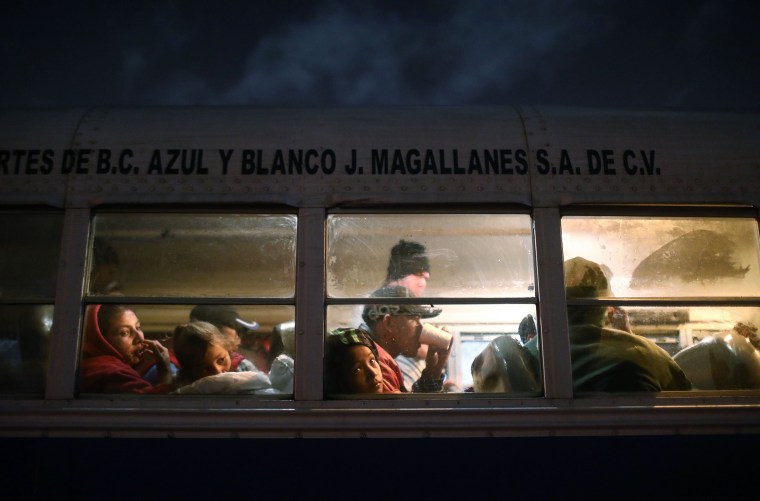WASHINGTON — In defending the use of tear gas, troop deployment and other crowd control measures on the border, Department of Homeland Security Secretary Kirstjen Nielsen said last week that 600 of the 8,500 migrants waiting to enter California from Mexico as part of the Honduran caravan were confirmed as convicted criminals.
NBC News has learned that more than three-quarters of those 600 have been charged with illegal entry into the United States, illegal re-entry after a deportation order, and drunk driving, according to two sources. The remainder have been charged with more serious crimes.

The breakdown of charges provides context over what has become a fraught political issue. President Donald Trump repeatedly warned of dangers posed by the caravan ahead of the midterm election, even saying there could be terrorists from the Middle East among them
Immigrants routinely cross between ports of entry illegally because they are forced to wait for long periods in dangerous border towns if they attempt to cross at legal ports, and doing so does not make them a public safety threat, said Greg Chen, director of government relations at the American Immigration Lawyers Association.
"Many people who cross the border between ports of entry have valid asylum claims and have previously attempted to cross at ports of entry. People we have talked to have been blocked from entering and forced to return in weeks, or even months," Chen said.
Still, some of the convictions are for more serious crimes. Those include at least one case each of murder, assault and sexual exploitation of a minor.
"I'd push back on the notion that because the crimes aren't heinous they are not criminals," said one official on the condition of anonymity.
Under U.S. law, it is a felony to re-enter the United States after being ordered deported. The Obama administration included these immigrants who attempted reentry as priorities for deportation when it focused Immigration and Customs Enforcement resources on criminals.
Acting Attorney General Matthew Whitaker recently used his authority to review an immigration court case that could set precedent for whether multiple convictions of driving under the influence should be taken into account in determining whether someone has "good moral character" and should be ruled ineligible for asylum.


